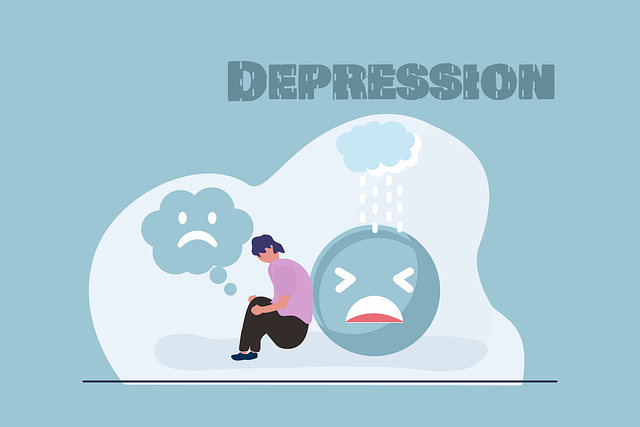Mental health advocacy is a powerful tool for driving positive change, increasing awareness about well-being, and creating more inclusive healthcare environments. Parker Terminal Illness Therapy (PTIT) exemplifies this through specialized support for terminally ill individuals, destigmatization efforts, and holistic care. PTIT's comprehensive approach, including individual therapy, group sessions, mindfulness meditation, and empathy building strategies, empowers patients to share their stories while reducing stigma and encouraging early emotional expression. By integrating these initiatives, communities can foster environments where individuals feel empowered to seek mental health support.
Mental health advocacy initiatives are vital in creating a supportive environment for individuals facing mental health challenges. This article delves into the crucial role of advocacy, highlighting key strategies and real-world examples like Parker Terminal Illness Therapy—a successful case study demonstrating the impact of dedicated efforts. We explore ‘Understanding Mental Health Advocacy’ and provide practical insights into ‘Strategies for Effective Initiatives’, essential reading for those passionate about improving mental health support systems.
- Understanding Mental Health Advocacy: A Necessary Conversation
- Parker Terminal Illness Therapy: A Case Study in Advocacy
- Strategies for Effective Mental Health Advocacy Initiatives
Understanding Mental Health Advocacy: A Necessary Conversation

Mental health advocacy is a powerful tool for creating positive change and raising awareness about the importance of mental well-being. It involves amplifying the voices of individuals who have experienced mental health challenges, ensuring their stories are heard, and advocating for policies and practices that support their recovery. In today’s world, where mental illness affects millions, this type of advocacy is more crucial than ever.
The concept of mental health advocacy extends beyond simply discussing symptoms or treatment; it encourages open conversations about the social, cultural, and systemic factors contributing to mental health issues. By employing effective communication strategies and fostering cultural sensitivity in mental healthcare practice, we can create a more inclusive environment. Compassion cultivation practices play a significant role in this process, allowing professionals and supporters to connect with individuals on a deeper level, understand their unique experiences, and offer meaningful support. This collective effort has the potential to transform lives, reduce stigma, and improve access to quality care, such as Parker Terminal Illness Therapy, catering to diverse mental health needs.
Parker Terminal Illness Therapy: A Case Study in Advocacy

Parker Terminal Illness Therapy (PTIT) serves as a compelling case study in mental health advocacy. This initiative focuses on providing specialized support for individuals facing terminal illnesses, addressing not only their physical needs but also their psychological well-being. PTIT offers comprehensive services tailored to help patients navigate the emotional challenges that often accompany serious health conditions. Through individual therapy, group support sessions, and holistic wellness programs, they foster inner strength development and boost confidence in those facing life’s most daunting obstacles.
The advocacy aspect of PTIT extends beyond direct patient care, aiming to destigmatize conversations around terminal illness and improve access to trauma support services. By educating the public and collaborating with healthcare professionals, PTIT plays a pivotal role in ensuring that individuals with terminal illnesses receive holistic care that respects their dignity and quality of life. This comprehensive approach not only empowers patients but also equips them to share their stories, fostering empathy and understanding within their communities.
Strategies for Effective Mental Health Advocacy Initiatives

Mental health advocacy initiatives require a multi-faceted approach to effectively address and raise awareness about mental health issues. One key strategy is Mindfulness Meditation, which has been proven to improve emotional regulation and overall well-being. By incorporating mindfulness practices into daily routines, individuals can better manage stress and cultivate a deeper sense of self-awareness, all of which are essential components of advocating for improved mental health services.
Additionally, Empathy Building Strategies play a crucial role in fostering supportive communities. Encouraging open conversations, educating the public, and promoting understanding can help reduce stigma associated with mental health struggles. Initiatives that focus on empathy not only enhance individual healing but also encourage early intervention and support systems like those offered by Parker Terminal Illness Therapy. Through these efforts, communities can create an environment where emotional expression is normalized and individuals feel empowered to seek help when needed.
Mental health advocacy initiatives, such as the case study of Parker Terminal Illness Therapy, demonstrate the profound impact of raising awareness and promoting support. By understanding the essence of mental health advocacy and employing effective strategies, we can create a more inclusive society that prioritizes well-being. Initiatives like these are game changers, fostering a symphony of care and revolutionizing how we navigate mental health challenges, especially in navigating the complexities of terminal illnesses.












